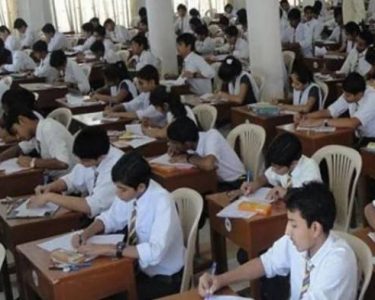In a shocking turn of events, Pakistan’s High Commission in New Delhi has announced the closure of a school dedicated to educating the children of its staff. This decision has sent shockwaves through the community and raised serious concerns about the academic future of the affected students. The abrupt closure, accompanied by the termination of the employees’ services, has left both the students and staff in a precarious situation.
The Closure Notice and Its Impact
Salman Sharif, the Charge d’Affaires of the Pakistan High Commission, delivered a letter to the school staff, officially notifying them of the closure. The letter, invoking Article 4 of the agreement, set the closure date as April 30, 2023, giving the staff a meager one-month notice. This sudden and unexpected closure has thrust the students into uncertainty, leaving them without a reliable educational institution to continue their studies.
Unpaid Salaries and Termination Notices
Adding insult to injury, a dismissed employee disclosed that the school staff had not received their salaries for an entire year prior to receiving the termination notices. This revelation casts a dark shadow over the High Commission’s decision, suggesting financial mismanagement and a lack of consideration for the well-being of the staff. With the closure imminent and their employment terminated, the staff members face an uncertain future, both financially and professionally.
READ MORE: Russian Hackers Targeting Government Institutions in Pakistan: Mitigating Cyber Threats
Reasons Behind the Closure
The Pakistan High Commission justified the closure by citing low attendance at the school. Since 2020, the High Commission has operated with a limited staff, resulting in a reduced number of students. Moreover, the Indian government has only allowed two children of Pakistan High Commission staff to enroll in a school other than the one operated by the High Commission. These factors have contributed to a decline in the number of students, creating an unsustainable environment for the continuation of the school’s operations.
Concerns for Students and Staff Members
This unexpected closure has sparked serious concerns regarding the educational prospects of the affected students. They now face the daunting task of finding alternative educational institutions that can accommodate their needs. The disruption to their academic progress and the loss of a familiar and supportive environment may have long-lasting effects on their educational journey.
Simultaneously, the staff members who have lost their jobs find themselves in a challenging situation. The termination of their employment without prior notice, combined with the financial strain of unpaid salaries, adds an additional layer of difficulty. Their livelihoods have been abruptly disrupted, and they now face the daunting task of seeking new employment opportunities in an uncertain job market.
Conclusion
The closure of the school by Pakistan’s High Commission in New Delhi has sent shockwaves through the community, impacting both the students and staff members. The sudden nature of the closure, coupled with the lack of salaries for an extended period, has created an atmosphere of uncertainty and concern. The affected students now face an uphill battle in finding new educational opportunities, while the staff members must navigate the challenges of unemployment. This unfortunate turn of events highlights the importance of effective communication, financial transparency, and the need to prioritize the welfare of students and employees in such critical decisions.




